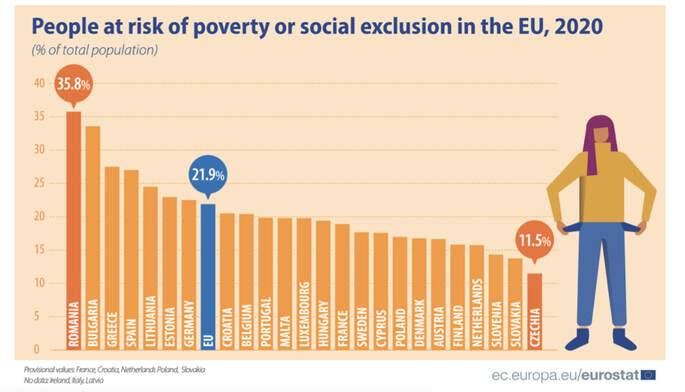EU SOCIAL PILLAR
Chapter II
20. Access to essential services
"Everyone has the right to access essential services of good quality, including water, sanitation, energy, transport, financial services and digital communications. Support for access to such services shall be available for those in need".


